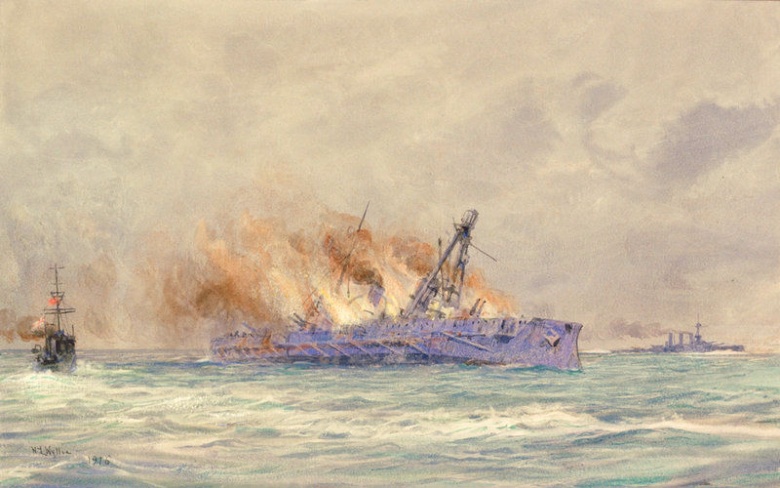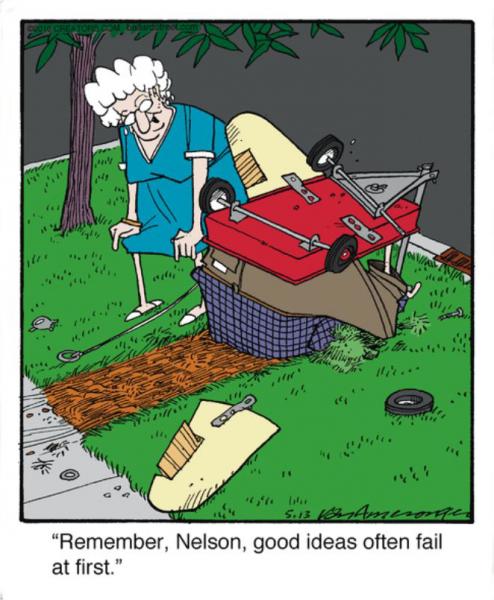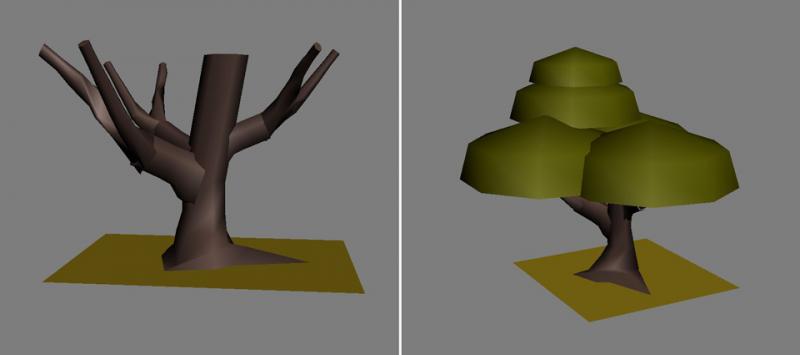-
Posts
2,637 -
Joined
-
Last visited
-
Days Won
1
Content Type
Profiles
Forums
Gallery
Downloads
Store
Everything posted by Hauksbee
-
Thanks elephant. So it's an Me-108, but not an Me-108. I guess that certainly qualifies as a trick question. I was especially surprised reading the specs.: Crew 1, Passengers 3. So it's a four-seater after all. 'Cannot for the life of me see where there's room for them. The original 108 had seats side-by-side, two rows. Are the seats in this version a single file of four?
-

Did the Battle of Jutland Really Matter...?
Hauksbee replied to Hauksbee's topic in WOFF UE/PE - General Discussion
Well...I'll be de'mmed! There was a mutiny in 1931. (I never heard of it) The British government was grappling with the onset of the Great Depression and, in an attempt to cut public spending, reduced Naval pay by about 25%. For a lot of the enlisted men, that put their families under the poverty line. This happened when the fleet was at sea. Rumors pervaded, but no one was really sure what had happened until the fleet returned to Firth Comarty, port of Inverton. Then all hell broke loose. Eventually, the government backed down. Nobody was hanged or court-martialed, though a few did spend some time in the brig. -
Very good article on Jutland found this morning on Yahoo with a few new insights (for me.) Such as: Jellicoe and Beatty were co-equal Admirals and hated each other, and refused to co-operate. So where the Germans fought one unified battle, the British fought two; neither supporting the other. . At the end of the article, there's even more good information in the Comments Section. Here's one of them by Anthony Skrebys: . "Jutland being called a draw is still up to great debate a hundred year later .... it was or could have been a great British victory , but for the massive egos and unwillingness of Jellico and Beatty to work together ... The two British admirals , fought as individuals , instead of being a cohesive force that would exploit opportunities as they produced themselves ... The Germans fought as a singular force , and had better aim , and also the German Battle-cruisers where of a much better construction the their British foes .... a pair of German Battle-cruisers limped back to Kiel being more than half under the water .. it was a long engagement and the haze and difficult light conditions played a very massive part in the battle ... both sides changed battle sides 3 times ... the English thinking on more than one occasion that the ships closest to them were the other English Admiral's fleet that filed into a battle line to support the other ... This was proven very wrong when the Germans opened fire with Battleships, Battle-cruisers , Destroyers, and Torpedo boats, at ranges under 5 miles , and during this heated exchanges , the smoke from their stacks, the burning ships, and even smokescreens , made this seem like a bar-room brawl with the lights out which was further magnified by the setting sun and fading light levels ... at the end of the battle the Germans found themselves west of the English fleets and had to steam through the British Battle fleet to get back to port in Kiel .... Hipper got very lucky with such bad visibility , that he was able to pass between the two English fleets .. this gap was about 10 miles wide , and somehow were not seen ... The British lost more ships and sailors than the Germans by a 6 to 4 ratio ... .....But what was learned from this battle ? It became clear that there is no room for two such Egomaniac Admirals of equal ranks that refused to talk to each other about battle tactics and working together to gain this tactical advantage to turn the battle .... There was a Naval inquiry long after the battle which resulted in major changes in having one man in command of a battle like this ... This battle is still a very major class study even today at Annapolis , with further studies at the War College , and in senior command studies ....
-

If at first you don't succeed...
Hauksbee replied to Hauksbee's topic in WOFF UE/PE - General Discussion
Sorry guys. I had run across a cartoon that I liked and attempted to post it. But when I got ready to attach it, I got an Error Message saying that it was the wrong file format and Combat Ace couldn't see it. So I decided "The Hell with it." and just closed out. (assuming that would cancel the posting. Apparently, it didn't and went on without me. Here's the cartoon. -
-
Great Stuff! (as usual) There's nothing better for getting the eyes full open (and the juices flowing) in the morning than a cup of hot coffee and some new films from Hellshade. (1) In the first film (around 2:20) you seem to be struggling with gun jams...yes? And the film fades out, comes back, and fades out, and every time it appears that the same Camel is still sitting squarely in your gunsights. Was that really the same plane? (2) 5 Things Learned In 8 Minutes with Spads: what were they? Other than watch your six. Must say WOFF3 has a dynamite Damage Model. Your Dr.1 was fairly peppered.
-

3D Modelling - Maybe time to start it
Hauksbee replied to Olham's topic in WOFF UE/PE - General Discussion
Yes, even then. You can build an object with parts that do (or don't) touch each other and when you incorporate this object in a larger scene, all the little bits remain in place. It's still one object. Or, You can build an object with parts that do (or don't) touch each other, then "Select All" the bits and "Group" them. That means you can't accidentally move them until you "Ungroup". -

3D Modelling - Maybe time to start it
Hauksbee replied to Olham's topic in WOFF UE/PE - General Discussion
Worked with SketchUp? No, but I've been very interested in it at times. But I've also had some other software in the queue to master first. I've watched a lot of tutorials on YouTube. 'Looks very interesting. (and, 'yes', it can be imported into G-Max.) By all means, yes, things in G-max can be made out of many small things and grouped together to form larger objects. This is true of every modeling program. -
'Makes one wonder how the Netflix film makers got it so wrong?
-

3D Modelling - Maybe time to start it
Hauksbee replied to Olham's topic in WOFF UE/PE - General Discussion
(1) Short answer: "Yes". (1a) Slightly longer answer: Being a retired Olde Fart, I spend a lot of time in front of the computer monitor. As a result, I check in here about four or five times a day just to see if anything new has been posted. You have touched on the all-time-great ball-buster polygon problem. Regrettably, I have never built a tree. But I have thought about it a good deal. (While writing this reply, I thought I'd test one of my theories.) This tree, built in 3D StudioMax is made from 10 cylinders. Each has 6 sides and 5 divisions along the length, or, 30 vertices each. By converting to 'editable mesh' I made each taper. Then I arranged them as trunk and branches. The leaves are Spheres (9 segments with the bottom half sliced off) then re-sized and stacked. To finish off, in Photoshop, make a circular texture map from real leaf photos. Make the leaves point away from the center and stop shy of the edge. Then make a Transparency Map to make rest of the sphere edge go away. Using a Spherical Mapping, map the leaves to the hemisphere. You should get a ragged edge. Make a Bump Map to give the leaves a dimensional texture. I didn't have time to do all that, but the theory is sound. (this tree took about 30 minutes) Map a wood bark texture to each cylinder. You can see that the joins of the branches are pretty sloppy, but that can be cured. This tree has a total of 905 polygons. How does that compare, Robert, to what you've downloaded? . If you're making a small wooded area, or forest, only the trees near the edge need branches and trunk. The rest only need the leafy canopy. Another technique that works at ground level is to map a real tree onto to a vertical plane. (4 vertices) Add a Transparency Map so the plane goes away and only the tree remains. Most animation programs have a way to tell an object "Always Face Camera" so you never see the edge when the camera POV changes. 'Don't know if you can do this with an air-born WOFF camera, but you could probably ask Pol. Might not work when viewed from an oblique in-the-air angle. Burning beard: I suspected the same. That what I was seeing was a surf line. Pretty weird, having a river with a surf line on each bank. And yes, if you want to jump in to 3D modeling for WOFF, buildings are the best starting point. -

3D Modelling - Maybe time to start it
Hauksbee replied to Olham's topic in WOFF UE/PE - General Discussion
Yes. Whenever you're ready. -
That's a 100% increase! Glad to hear it!
-

Now THAT'S a Veteran :)
Hauksbee replied to UK_Widowmaker's topic in WOFF UE/PE - General Discussion
It's good to know that people like this are still around. -
Ol' Peter knew a thing or two.
-
True. The British prepared in great detail. The Germans pinned all their hopes on the swift, pre-emptive attack which would catch the opposing forces on the ground. It had worked everywhere before, thus no reason to assume it wouldn't work again in England. That's why Göring dismissed the task with a wave of his hand and said that all he needed was four days of good weather.
-

Verdun - Got it when it came out
Hauksbee replied to UK_Widowmaker's topic in WOFF UE/PE - General Discussion
Sniping? Well, OK. But stay clear of those massed dashes across No-Man's-Land into the enemy wire...





